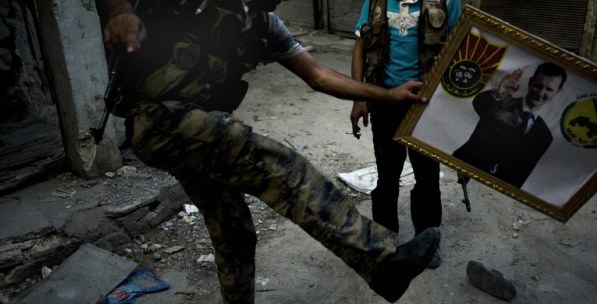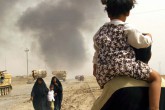With the Syrian crisis, all the actors involved in the Sykes-Picot order have undergone the Lithmus test. In the resulting picture, it is roughly seen in the watch list handed out a century ago that there is no actor but Turkey who maintained her position or role. The coup d’état started on July 3 in Egypt has gone beyond the Lithmus test and revealed a new regional and global political X-ray so to speak. We face a quite troublesome picture. This picture needs to be evaluated by overcoming all the fuss of the approaches which have begun with the Arab uprisings and could not go beyond mere shallow tactical readings for daily consumption.
The Syrian crisis has caused the emergence of a new short-term axis which is unsustainable regionally and globally. The actors who have preferred proxy wars rather than facing the crisis in Syria only intensified the trouble. The approach slaving itself to Bashar al Assad in Syria has also consistently slaved itself to General al Sisi in Egypt. The “Assad-Sisi axis” has become one of the paradigms explaining very well the global crisis that we are going through as far as its actors and global repercussions are concerned. The position of Russia in the Syrian crisis and the role of the Unites States in the Egyptian coup; the position of Iran in support of the massacres by the Baath and the role of the Gulf becoming very generous towards the Egyptian coup will play a key role for us to understand this new emerging axis.
It is known first and foremost by those who are addicted to this aforementioned axis that the Assad-Sisi axis has no future. It is impossible to expect from the regional actors of this new axis to possibly fit into a role and undertake responsibility beyond being an “intermediary-factor”. However, as the other actors who have global power of intervention adopt a similar approach, we face a global uncertainty. We must see that the “environment of global uncertainty”, which is also a reflection of global economic-political pains, increases risks in all regards, lowers administrative capability, and causes formation of different areas of crisis; but more importantly, it renders devising of politics impossible. We experience the most evident element of the ensuing lack of regional and global politics in the form of Statelessness in our region. If you include in this picture the search for “a Stable State” and “a State generating foundational politics” you would be talking about a serious regional and global State crisis.
Starting with Syria, the table of countries which have no government practically or are in chaos, is a total disaster: No government in Lebanon either, Iraq with a coalition government whose existence is no better than its non-existence, a coup government in Egypt, a meaningless administration in Jordan, transition governments in Tunisia and Libya, a government in Algeria living in the past century, a new administration in Pakistan which is in between of the coup and the election, the kingdom in Saudi Arabia under political sedation, a structure in Israel undecided to be a project or a State, and a new transitional period in Iran after Mahmoud Ahmedinajad who has symbolically concluded his last two years in a state of “ State crisis”.
Turkey has become the only country not involved in the aforementioned scene of chaos. Turkey will certainly pay the price for her choice. As long as the country does not suffer from lack of politics and experience a State crisis, it has a strong potential to indemnify the short-term costs of the new axis, which it has refused to be involved with in the middle-term. For the non-regional actors (the US, the EU and Russia) , remaining on the Assad-Sisi axis seems to still produce a manageable cost. Just for this reason, they choose the crises of the status quo over the risks of the new order. The regional actors, however, have no such luxury.
In the middle-run, each actor is obliged to incur and bear the cost of a
In this article
- Foreign Policy
- Opinion
- Abdel Fattah el-Sisi
- Arabian peninsula
- Bashar Al Assad
- Coup
- Egypt
- European Union (EU)
- Global Actors | Local Actors
- Global Power
- gulf
- Ikhwan
- Iraq
- Islamic Republic of Iran
- Israel
- Jordan
- Lebanon
- Libya
- Libyan Crisis
- Mahmoud Ahmadinejad
- Middle East
- Pakistan
- Proxy War
- Russia
- Saudi Arabia
- Syria
- Syrian Civil War
- Syrian Conflict
- Syrian Crisis
- Tunisia
- United States (US)



